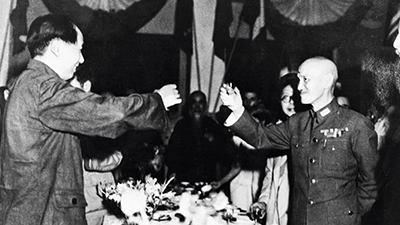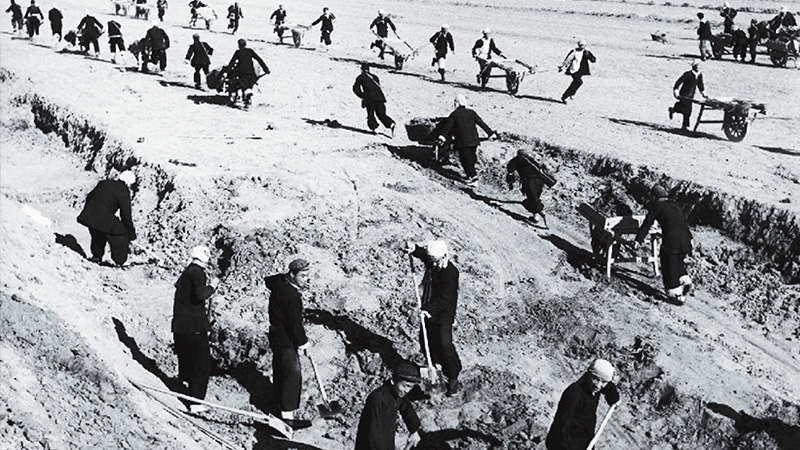Communism in China
Teacher Resources
Driving Question: Why did communism take root in China and how did that have global ramifications?
Why did communism rise in China, and how did it change the world? This lesson looks at revolution, reform, and the ripple effects of one of history’s biggest power shifts.
Learning Objectives:
- Use evidence to evaluate how China’s communist revolution was shaped by global conflicts and anti-imperialist struggles.
- Use quick-sourcing skills to assess the causes and consequences of the spread of communist states in this period.
Vocab Terms:
- collectivization
- communism
- coup
- decolonization
- ideological
- minority
- protest
Opener: Communism in China
To teach this lesson step, refer to page 2 of the Lesson 8.6 Teaching Guide.
See the thread Mao, Mangoes, and China’s Cultural Revolution for ideas for teaching the Chinese Communist Revolution.
China was a major player in the Cold War and decolonization struggles of this period. Use image analysis to begin engaging with the Chinese Communist Revolution.
Seeing Red Slideshow
Chinese Communist Revolution
To teach this lesson step, refer to page 3 of the Lesson 8.6 Teaching Guide.
Looking for more support using video in the classroom? Check out the blog post Engaging students with video.
Examine how Mao Zedong launched the Cultural Revolution to reshape Chinese society and protect communist ideals. Through an article and video, you will explore internal politics, Cold War pressures, and anti-imperialist goals.
-
Guiding Questions
-
Before you read
Preview the questions below, and then skim the article. Be sure to look at the section headings and any images.
While you read
Look for answers to these questions:
- Why did China see itself as fighting imperialism in the twentieth century?
- How did the relationship between the GMD and the CPC change between 1921 and 1949?
- What policies did Mao and the Communist Party put in place after coming to power?
- What was the goal of the Great Leap Forward?
- What was the goal of the Cultural Revolution?
After you read
Respond to this question: What evidence supports that claim that China’s modern politics are shaped by anti-imperialism?
-
Guiding Questions
-
Before you watch
Preview the questions below, and then review the transcript.
While you watch
Look for answers to these questions:
- What is the difference between a liberal revolution and a social revolution?
- Which two parties competed to lead China in the 1920s and 1930s?
- What inspired the Chinese Communist Revolution from inside and outside China?
- How did the Communist Party respond to Japanese occupation during the war?
- Was the Chinese Communist Revolution an anticolonial struggle?
After you watch
Respond to this question: How does the Chinese Communist Revolution help you understand the connection between Cold War politics and global decolonization?
Closer: Communism in China
To teach this lesson step, refer to page 5 of the Lesson 8.6 Teaching Guide.
Do you (or your students) need a frames refresher? Check out the World History Frames Guide.
Now that you’ve explored the Chinese Communist Revolution, it’s time to consider how the frames can help us understand the effects of this ideology more broadly.
Global Reactions to Communism
To teach this lesson step, refer to page 5 of the Lesson 8.6 Teaching Guide.
Use sources to analyze how people and governments around the world responded to communism. These materials will deepen your understanding of how China’s revolution fit into broader Cold War struggles.











